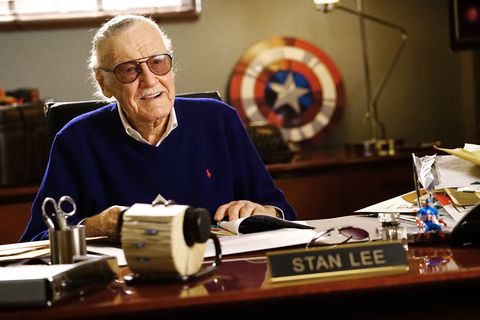He revelled in his powers. These creations were not only living, breathing people, with the thought-balloons he had invented bubbling from their troubled heads. They also had their own words, their own melody, from the poetic turns of that sleek spacefarer, the Silver Surfer (“I, too, sense the icy touch of dread disaster!”) to the Shakespearean tones of Thor (“Whither goest thou?”) He resurrected Captain America, an old favourite, pulling him out of the Arctic ice cap to save the world again. He defied the massed sniffing prudes of the Comics Code Authority by writing about racism and drug abuse, until they capitulated! The X-Men, erupting in his brain in 1963, spoke for all outcasts, black, gay, disabled, who felt like mutants. But he challenged hippies and peace-marchers just as much by making them love Iron Man, a billionaire arms-maker, as a hero and not a villain! (That would have been too easy.) He had heroes who fought against themselves, like Dr Bruce Banner, who became that livid green monster, the Incredible Hulk! And tried to cure himself, but the Hulk didn’t agree! Right out of a Greek tragedy. Or maybe Freud.

Of course, there were trials to overcome. Two of the best artists, Jack Kirby (Fantastic Four, Silver Surfer) and Steve Ditko (Spiderman, Doctor Strange), felt uncredited and fell out with him. (Well, he was certainly grabbing most of the attention! And who said heroes always got on with one another?) Marvel’s fortunes fell in the 1980s and early 1990s, like those of comic books generally. His attempts to put his characters on TV mostly failed, because directors made them too one-dimensional. An internet company ended badly. It was Hollywood, and the Spider-Man and X-Men series in particular, that turned his luck right round again!
译文由可可原创,仅供学习交流使用,未经许可请勿转载。












